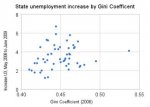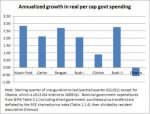Boo Radley
DP Veteran
- Joined
- Dec 20, 2009
- Messages
- 37,066
- Reaction score
- 7,028
- Gender
- Male
- Political Leaning
- Liberal
So, give us a number. How much should an employer be expected to pay for each employee and how much should each individual be expected to pay as a percentage of wages (FYI: Our employees currently pay nothing)...
I expect it to be paid in taxes. You lose wages because your employer picks up your cost. he could pay you move if he wasn't paying your insurance. So, you don't really pay nothing. That's a slight of hand many miss.
The exact numbers of what it might cost are not readily available, but I've looked up and posted how it would be before. The point is, the cost would be more evenly divided, and as it would function like an insurance, the larger pool would help negate costs. Every single payer system in the world, the great ones and the not so great, all pay less than we do.





